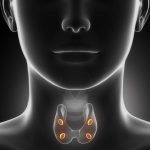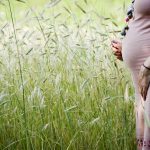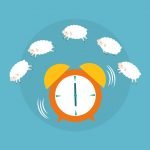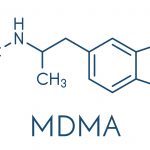Cannabis-Related Poison Control Calls Regarding Children Double After Legalization
Node Smith, ND
After medical marijuana became legal in Massachusetts, cannabis-related poison control calls involving the commonwealth’s children and teenagers doubled, according to a public health investigation led by University of Massachusetts Amherst injury prevention researcher Jennifer Whitehill.
Increase in calls occurred despite legislative mandates for childproof packaging and warning labels
The increase in calls to the Regional Center for Poison Control and Prevention at Boston Children’s Hospital occurred despite legislative mandates for childproof packaging and warning labels, and before the recreational use of marijuana was legalized for adults.
“As states across the country enact more permissive marijuana policies, we need to do more to promote safe storage in households with children,” says Whitehill, assistant professor of health promotion and policy and lead author of the research published in JAMA Network Open.
Data analyzed from the poison control center
Whitehill and former UMass Amherst graduate student Calla Harrington analyzed data from the poison control center in collaboration with staff from the center, including medical director Dr. Michele Burns and clinical fellow Dr. Michael Chary. The research team reviewed the center’s data from 2009 through 2016 — four years before and four years after medical marijuana was legalized in Massachusetts.
During the study period, the poison control center received 218 calls from Massachusetts involving cannabis exposure in children and teens, from infancy to age 19, including 98 single-substance calls and 120 polysubstance calls. Those calls represented 0.15 percent of all poison control calls during that time period for that age group.
While we’re pleased to see that the incidence is relatively low, we feel these cases are preventable, and the issue needs to be on the radar of policymakers and parents, particularly now that dispensaries are open for adult-use sales,” said Jennifer Whitehill, Injury Prevention Researcher, University of Massachusetts Amherst.
Some highlights of the findings:
- The incidence of calls for single-substance cannabis exposure increased 140 percent during the study period — from 0.4 per 100,000 population before medical marijuana was legalized to 1.1 per 100,000 population after legalization.
- Nearly 80 percent of the calls to the poison control center came from healthcare facilities, and, in terms of medical outcomes, most of the exposures resulted in moderate and minor effects. Four cases with major effects and no deaths were reported.
- A little more than a quarter of the cases were reported as unintentional, with 19.4 percent of calls involving children from infancy through age 4.
- Calls involving edible cannabis products increased for most age groups, including ages 15-19. Because other research has found that the proportion of teens using marijuana is remaining about the same even as marijuana laws are loosening, this finding suggests that teenagers may be caught off guard by the potentially potent effects of edibles and concentrated extracts, Whitehill says.
The paper concludes, “This study suggests that states liberalizing marijuana policies should consider strengthening regulations to prevent unintentional exposure among young children and enhancing efforts to prevent use by teenagers, with particular attention to edible cannabis products and concentrated extracts.”
Whitehill says the next step is to study the impact of marijuana’s legalization for adult use, which went into effect in late 2016. Two years later, in November 2018, marijuana retail stores began opening.
“Given what we’ve seen here,” Whitehill says, “I would expect the calls to the poison control center to increase even more.”
Source:
- Whitehill, J. et al. (2019) Incidence of Pediatric Cannabis Exposure Among Children and Teenagers Aged 0 to 19 Years Before and After Medical Marijuana Legalization in Massachusetts. JAMA Network Open. doi.org/10.1001/jamanetworkopen.2019.9456
 Node Smith, ND, is a naturopathic physician in Humboldt, Saskatchewan and associate editor and continuing education director for NDNR. His mission is serving relationships that support the process of transformation, and that ultimately lead to healthier people, businesses and communities. His primary therapeutic tools include counselling, homeopathy, diet and the use of cold water combined with exercise. Node considers health to be a reflection of the relationships a person or a business has with themselves, with God and with those around them. In order to cure disease and to heal, these relationships must be specifically considered. Node has worked intimately with many groups and organizations within the naturopathic profession, and helped found the non-profit, Association for Naturopathic Revitalization (ANR), which works to promote and facilitate experiential education in vitalism.
Node Smith, ND, is a naturopathic physician in Humboldt, Saskatchewan and associate editor and continuing education director for NDNR. His mission is serving relationships that support the process of transformation, and that ultimately lead to healthier people, businesses and communities. His primary therapeutic tools include counselling, homeopathy, diet and the use of cold water combined with exercise. Node considers health to be a reflection of the relationships a person or a business has with themselves, with God and with those around them. In order to cure disease and to heal, these relationships must be specifically considered. Node has worked intimately with many groups and organizations within the naturopathic profession, and helped found the non-profit, Association for Naturopathic Revitalization (ANR), which works to promote and facilitate experiential education in vitalism.
Node Smith graduated from the National University of Natural Medicine (NUNM) in 2017, and is currently licensed as a naturopathic physician in Oregon and working towards becoming licensed in Saskatchewan, Canada as well.










